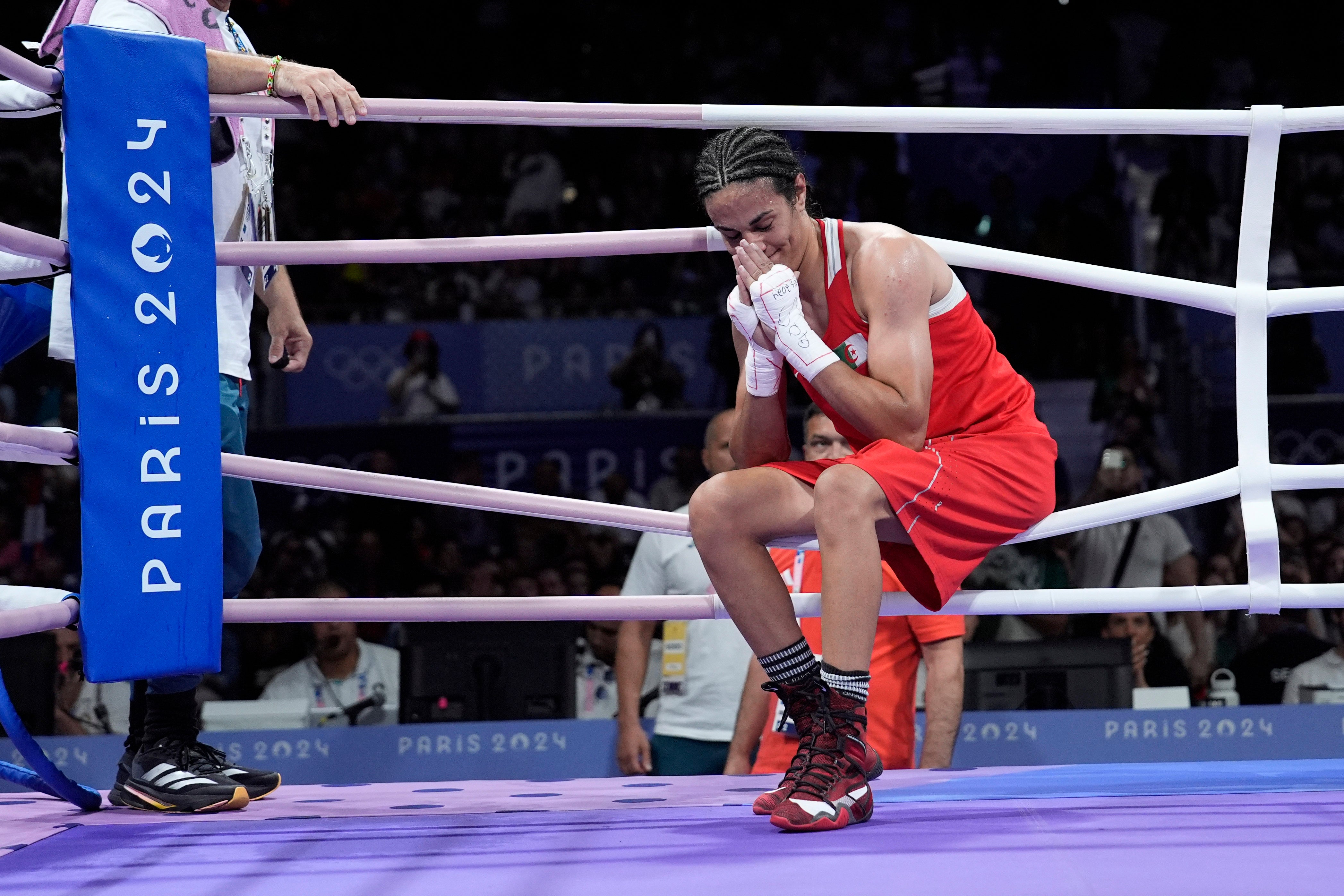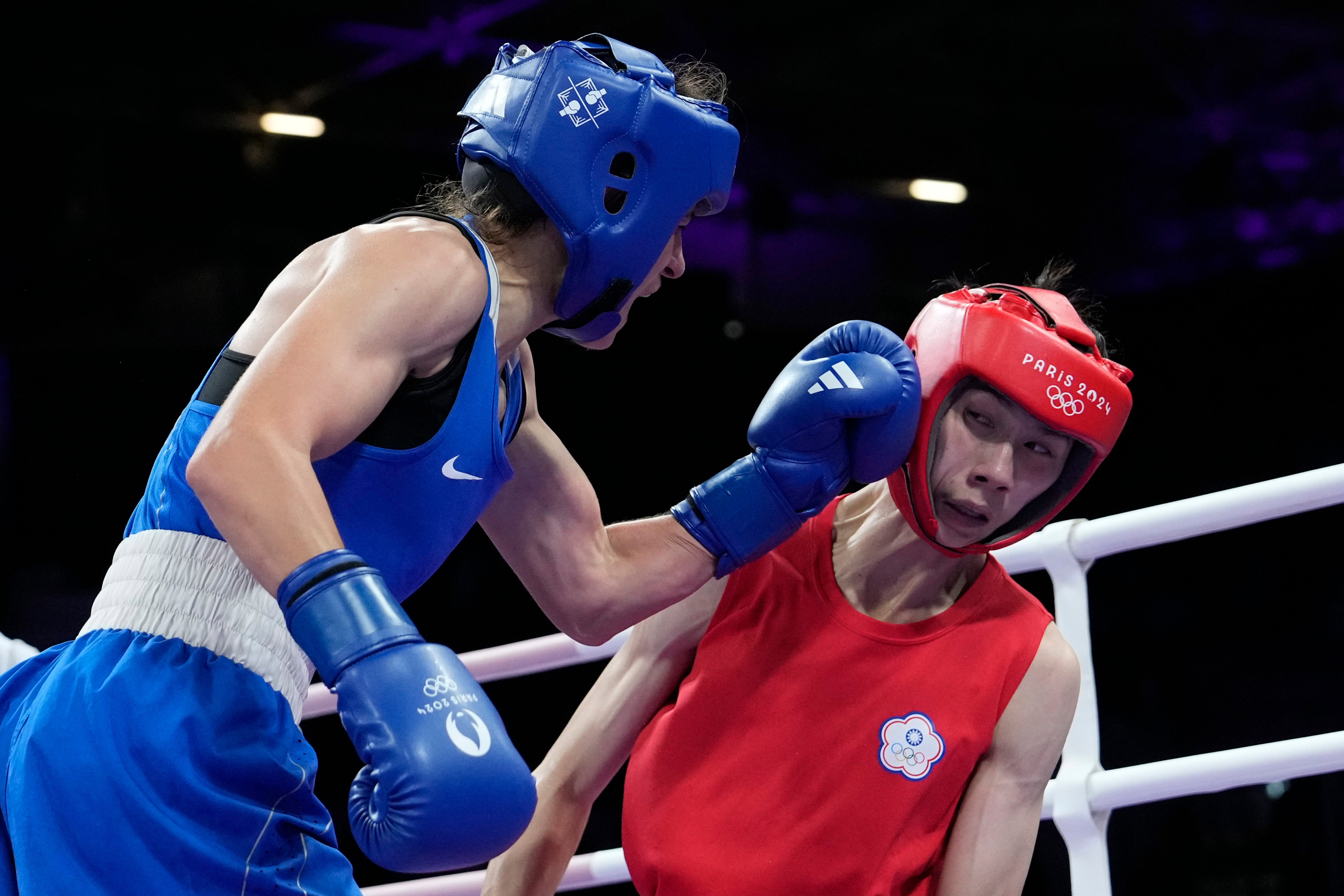Imane Khelif failed a gender eligibility test due to the presence of certain chromosomes, the International Boxing Association (IBA) has said.
Khelif has been at the centre of a Paris Olympics controversy, which escalated when the Algerian beat Angela Carini in the boxing last week. Italy’s Carini withdrew 46 into seconds their fight at 66kg, after being hit clean by Khelif once.
The Algerian fighter has since recorded another win, ensuring her a bronze medal at least, amid inaccurate claims from some corners that she is a transgender athlete. The 25-year-old has never identified as transgender or intersex, but she did fail a gender eligibility test at the 2023 World Championships, according to the IBA, leading to her disqualification.
Taiwan’s Lin Yu-ting, 28, has faced similar backlash while securing a bronze medal at least in Paris, after she was disqualified from the same tournament as Khelif for failing the same test. However, the IBA – which organised the World Championships but is no longer involved with the Olympics – would not initially reveal why the boxers failed their tests.
At a press conference on Monday (5 August), the IBA, which no longer oversees Olympic boxing amid concerns about its integrity and links to Russia, finally clarified that Khelif and Lin’s test results revealed chromosomes that made them ineligible to compete in the women’s category.
Chris Roberts, the IBA’s General Secretary and CEO, told reporters: “Blood tests were taken, a gender test was taken – as it was – during the Women’s World Championship in 2022 in Istanbul. On 17 May 2022, the blood tests were taken by a lab in Istanbul. The results there were issued on 24 May. The results that were brought out were inconsistent, further to which there’s been a number of questions as to why.
“We go to the female World Championships that took place between 15 and 26 March [in 2023 in India]. On 17 March 2023, both boxers were asked to take a further blood test. That happened, and on 23 March the results came through, and it demonstrated the chromosomes that we referred to within the competition rules – that make both boxers ineligible.

“That was then further ratified by our board of directors. The decision was taken to remove both boxers from our World Championships. For [Khelif] and for Lin, clearly the technical and competition rules that apply to the IBA are different to that of the IOC.
“[It’s] difficult, because both boxers have worked extremely hard towards their own goals, and of course we find ourselves in this difficult position now. It’s never been our intention to bring any of this about […] We’re not able to disclose the results of any test, but you can read between the lines where that sits.”
Roberts added that, after receiving contact from Algeria and Taiwan’s respective National Olympic Committees, the IBA “can’t disclose any information pertinent to either boxer”.
Umar Kremlev, the IBA’s president, then claimed that Khelif and Lin’s test results showed “very high” levels of testosterone.
Khelif is said to have lodged an appeal over her disqualification and subsequently withdrawn it. It remains unclear why the appeal was withdrawn.

Ioannis Filippatos, president of the European Boxing Confederation and a former Chair of the IBA Medical Committee, spoke next. The doctor, an obstetrician gynaecologist, suggested that the IOC’s means of determining a fighter’s sex is problematic, because it is based on the information in an athlete’s passport.
Gabriele Martelli, president of the IBA Coaches Committee, then claimed that Khelif and Lin possess an “unfair advantage”. He said: “If we lose because of an unfair advantage, we might be hurt emotionally, physically, because an advantage was used to take a medal from us. But in our sport, it is different, it is dangerous; when there is an unfair advantage, someone can die.”
Since parting ways with the IBA, the IOC has arranged the boxing at the Tokyo and Paris Olympics. For the ongoing Games, the body set up the Paris Boxing Unit to oversee the competitions.
The IBA’s legitimacy and impartiality have been called into question in recent years. The Russian-linked body has been the subject of allegations of corruption at senior levels, and it is backed by Russian energy corporation Gazprom.
The IOC withdrew recognition of the IBA in 2023 over concerns around finances, governance, ethics, refereeing and judging. The body has fervently denied these allegations. In April 2024, a court of arbitration upheld the IOC’s decision to strip the IBA of its status.

